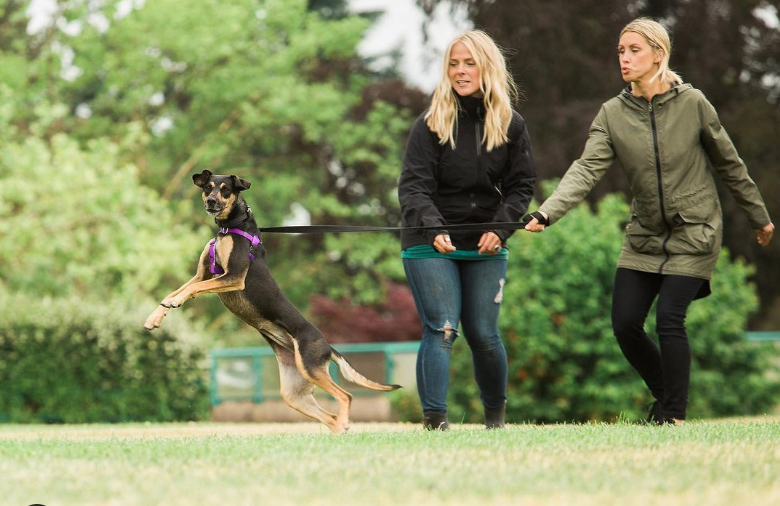The Challenges Puppy Ownership Face and How To Overcome Them
Bringing a puppy into your house is a big life decision filled with happiness and excitement. Nevertheless, being ready for the difficulties of parenting a puppy is crucial. You will be able to overcome these difficulties and enable yourself to take full advantage of the opportunities to appreciate having your puppy around if you are aware of what will occur and what it will take to raise a puppy. Since puppies are living animals, you must provide them with a lot of care, especially considering their reputation for being rowdy and energetic. These are a handful of the main challenges you will encounter as a puppy parent.
Challenges the new puppy owners face
1. Socialization and foundational instruction
All puppies need socialization, but novice puppy owners may find it difficult. To learn acceptable behavior, puppies must be exposed to various people, animals, and situations. It can be challenging, particularly if you have little dog experience.
Enrolling in a puppy socialization class is among the first and most crucial things to accomplish. As an owner, you will gain valuable knowledge about interpreting body language in dogs, enabling you to anticipate and comprehend the dynamics in the playgroup. Your puppy will also be able to socialize with other young canines in a monitored environment, preventing bullying and fostering confidence in timid dogs. Your dog’s movements will allow you to “hear” all he wants you to know. Along with learning how to help your puppy navigate social situations, you’ll also learn to distinguish between bullying behavior and play indications. Ultimately, a puppy socialization program prepares you both for success in public settings.
You’ll be eager and prepared to transition into basic obedience training at the end of puppy socialization classes if you take the responsibility of being a responsible dog owner seriously. In these lessons, you will learn various skills, such as using positive reinforcement to train your dog to obey simple commands like sit, stay, and come to me. These can save lives, as can directives like drop it, leave it, and lie down.
Barking, learning to use a leash, mastering the fundamentals of sit, stay, lie down, and recall, controlling the need to chase after prey, recognizing and interpreting social cues, avoiding confrontations, or becoming reactive—you get the idea. Puppy owners have many tasks before their new dog becomes a wonderful friend.
As much time as you must dedicate to socializing and training your puppy, you must also commit to training yourself if you want your dog to be a wonderful friend.
2. Anxiety of divorce

If your job requires you to be gone from home frequently, you will have to cope with your dog’s separation anxiety and whining. But all you can do is wait it out if you suffer from separation anxiety. You must exhibit strength and get outside, failing which your dog will never respect you. Because employment is a need in your life, you must go there. Your dog will eventually stop being too scared of you and become accustomed to the concept that you must go for a few hours each day. Still, there’s no denying that your dog will still be quite happy when you return.
3. Grasping teeth
Your dog will experience numerous difficulties during the teething period. This is because teething is when your dog may experience some bothersome pain, and you must work hard to relieve it. Giving your dog something to chew on is a good idea. Remember that your dog may experience diarrhea or similar symptoms at this point in life, so please be understanding.
4. Engaging All Parties

Accompanying a puppy into the home and getting everyone to adhere to the same rules and routines may be the most significant challenge. Dogs can only truly learn rules by being consistently taught them. Including your entire family in training is crucial to ensure your puppy receives the best instruction possible. As you explain your plans for your dog’s growth, be sure they understand what they can and cannot do. Everyone must follow the rules, such as not eating from the table or getting up on furniture. Maintaining the rules is difficult when your new puppy is adorable and begs to be put on a person’s lap or munch on their dinner plate. Significant issues begin small, and part of it is giving the puppy a little grace period on regulations while getting used to its new surroundings.
Recall that maintaining your dog’s discipline requires the cooperation of everyone in your household; you cannot succeed alone.
5. Burglary in the house

A puppy pooping all over your house is not something you want because it will be troublesome. If you want your dog to learn where to poop and pee, you would need to start house training it rather quickly. This will be extremely difficult since your puppy will not be able to follow this teaching due to its inability to regulate its natural functions. Housebreaking a dog might be a straightforward chore, or it can require months of consistent work, tolerance, and plenty of carpet spot remover. Achieving successful housebreaking for your puppy will involve:
- Develop a plan that suits your dog.
- Having the time and energy to take regular breaks.
- Enforcing the rules.
6. Adopt rather than purchase

Although adorable, puppies have many problems that require endless patience to resolve. That’s among the most substantial arguments favoring adopting a dog from a shelter rather than purchasing a puppy. The staff at the shelter has evaluated each dog offered for adoption, so you know a lot more about what you’re getting into and can steer clear of many of the pitfalls that come with having a puppy.
The misconception that purchasing a puppy will protect them from potential behavioral problems that shelter dogs may have is highly false. In addition to the fact that most dogs from shelters have lovely personalities and blend in perfectly with families and other pets, it is also more straightforward to identify and deal with potential problems and ensure the family and the dog are a great fit.
In addition, since most health problems in dogs arise as they get older, you will already be aware of the majority of health issues and the level of care that a shelter dog will require. This is only sometimes the case with puppies, as you never know how much a puppy’s first six months or year of life will cost regarding medical bills.
Conclusion
Regardless of breed, it is difficult to predict your dog’s disposition unless it comes from a very reputable breeder (which implies an expensive transaction). Dog breeds known for being amiable, like golden retrievers, can have serious behavioral and health problems, including aggression and genetic diseases. Backyard breeders and puppy mills don’t care what kind of dogs they are making.
Using a shelter or rescue is a terrific idea, even if you want the experience of rearing a small puppy. A puppy may require more time to come into your life, but they are out there and waiting for you!



